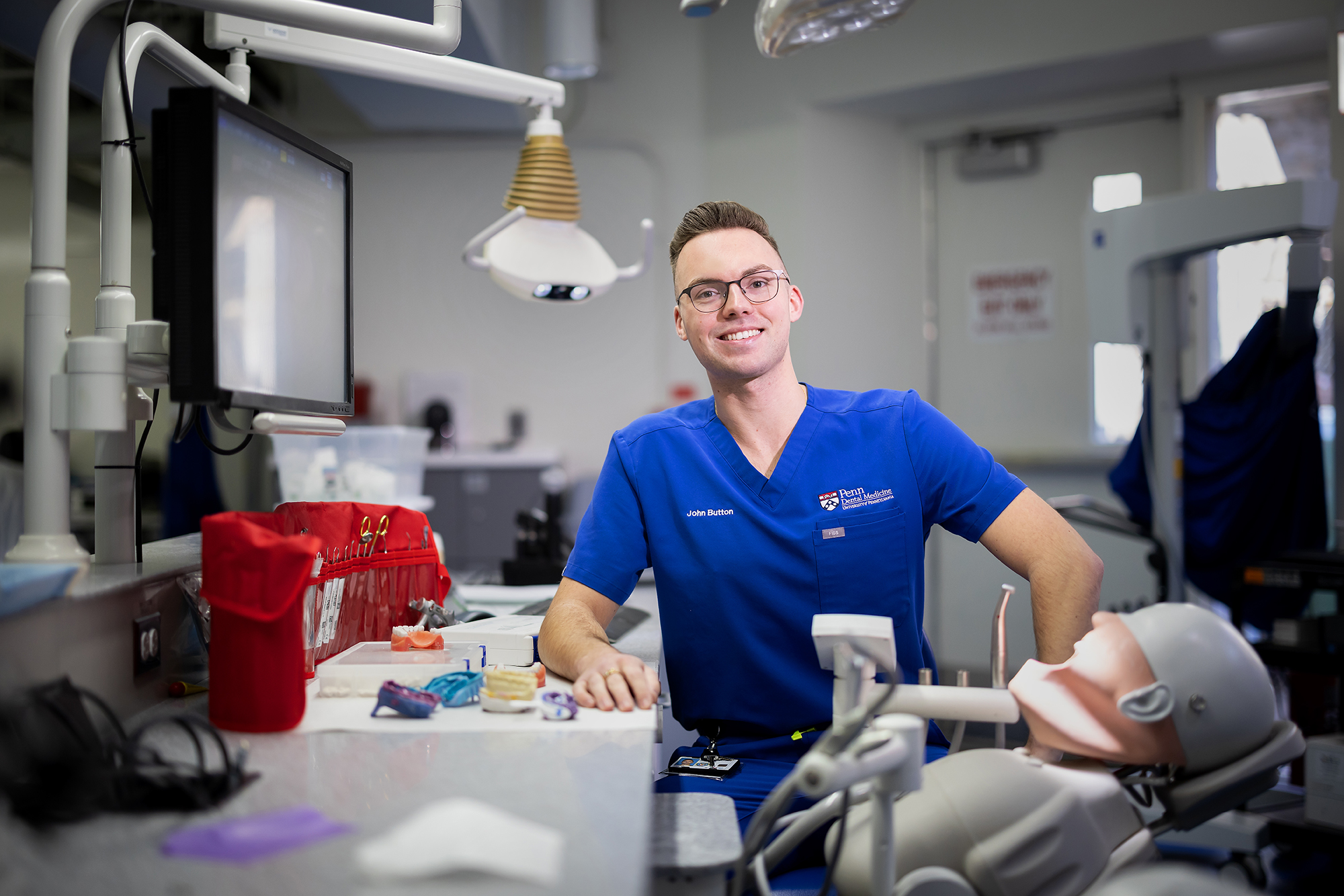
- Who
John Button is a second-year student in the School of Dental Medicine also pursuing a master’s degree in oral and population health, and he wants everyone to know about noma. It’s a gangrenous infection of the face and jaws that is often fatal, a condition the World Health Organization (WHO) officially recognized as a neglected tropical disease in December. Button says he has never met anyone in person with noma, which largely affects malnourished and impoverished children, but wants someday to work as a maxillofacial—head and neck—surgeon, helping noma survivors.
Button says he has always been interested in medicine, and that growing up in a rural town in Massachusetts showed him how difficult it is for some people to access medical care. After his father lost a front tooth in an accident, Button says he saw the way oral surgery could restore someone’s confidence and was inspired to pursue a career in dentistry.
From a young age, Button says he also knew he wanted to work with Médecins Sans Frontières (MSF)—Doctors Without Borders—and double-majored in biochemistry and French at Tufts University, since many MSF missions require that surgeons speak French.
For a French class assignment to write about a topic of interest, he reached out to Melissa Amundson, a U.S.-based maxillofacial trauma surgeon volunteering with MSF. Amundson is a consulting surgeon with MSF at the Noma Children’s Hospital in Sokoto, Nigeria, and their conversation was the first time Button heard of noma.
- What
Last April, Button read an NPR article Amundson had shared online entitled “A deadly disease so neglected it’s not even on the list of neglected tropical diseases.” Before learning that Nigeria and 31 other countries had submitted a dossier of evidence last January of why noma fits the WHO criteria to be a neglected tropical disease, Button reached out to people at Penn Dental to see if the School could help get noma on the list.
Through that process, he learned about French filmmaker Claire Jeantet and her noma documentary “Restoring Dignity,” and he connected with Penn Dental’s Michael Glick and Alonso Carrasco-Labra of Penn’s Center for Integrative Global Health (CIGOH). They suggested Button write an article about noma and put him in contact with Karl Stark, director of content at the Leonard Davis Institute of Health Economics, who helped Button learn how to write for the public.
In addition to Amundson and Jeantet, Button interviewed a noma survivor for his article, “The WHO recognizes noma after years of medical-dental disconnect,” which was published on the news site STAT in December. Button is now working with Elise Farley, a South African epidemiologist who studies noma, and Taylor Devine, a first-year dental student at Penn Dental, to highlight where noma is occurring.
The students have gone through every article they could find on noma published since 2000 to catalogue where, when, and how many cases were reported. They are creating a map of noma’s geographic distribution with help from Ben Liebersohn, a geospatial and mapping fellow at Penn Libraries. Last year, Farley also invited Button to join the advisory committee of the International Noma Network, a global consortium of noma researchers and stakeholders.
- Why
“It keeps me up at night, knowing that there are kids out there who are suffering from this disease,” Button says. His long-term goal is “to see if we can figure out a way to predict why one child is going to get noma or which child is going to develop noma, so we have a better understanding of to whom and where we should divert medical supplies and attention, to have the best outcomes for patients.”
Button also wants to see more priority given to dental health worldwide. “Dentistry is medicine, dentistry is health, and health is health,” he says. “I really dislike the historical perspective and idea that dentistry is a separate discipline from medicine, because we know, and are learning more every day, how dental diseases affect systemic health.”







